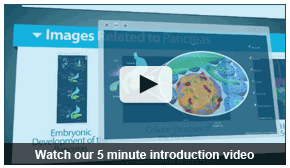-
Embryonic Development
-
Stem Cell Differentiation
-
Regenerative Medicine
Crohn's Disease
- Cell Therapy Approaches
Crohn's disease (CD) is an autoimmune disease associated with uncontrolled innate and adaptive activity of the immune system and represents one of the forms of inflammatory bowel disease (IBD). CD is characterized by an inflammation of the gastrointestinal tract, associated with unrestrained immune response, with increased abnormal T cell activity. Genetic, environmental, microbial and immunological factors may contribute to development of CD.
Treatment is sometimes effective for mild cases of CD, but for the most severe cases, treatment options are very limited. The conventional therapy for IBD typically fails to produce satisfactory results. Moreover, conventional therapy involves many side effects, which escalate into more complex complications at later stages of the disease.
Cell Therapy Approaches
Since there are currently no satisfactory curative options available, a cell-based therapeutic approach to repair of IBD-associated intestinal tissue and immune system damage is very appealing. Cell therapy can simultaneously repair both, where hematopoietic stem cells (HSCs) and mesenchymal stem cells (MSCs) bear the greatest potential.
MSCs, which can be isolated from numerous sources, including bone marrow and adipose tissue, can coordinate events related to repair of epithelium damaged by inflammatory processes. Due to excessive fibrosis leading to formation of strictures and obstructions, it may be difficult to restore normal intestinal architecture in CD patients. However, it has been reported that bone marrow derived-MSCs may play an important role in repairing fibrosis. The mesenchymal cells (intestinal subepithelial myofibroblasts) regulate proliferation and differentiation of the epithelial cell basement membrane and extracellular matrix metabolism. Inflammatory cytokines and growth factors, such as TGF-beta, IGF-1, and EGF, control the expression of matrix metalloproteinase (MMP) and of tissue inhibitors of metalloproteinases (TIMPs) in these cells and are elevated in the inflamed mucosa of IBD patients. The inflamed IBD tissues express higher levels of MMP-1-3 and MMP-9, when compared to TIMP-1 and 2. MSC release of cytokines and growth factors (TGF-beta, EGF, bFGF) and regulation of extracellular matrix contribute to the mucosal repair processes. In addition, in response to deep tissue injury, MSCs contribute to a new basement membrane formation by proliferate over the epithelial cells and migration to repair epithelial tissues. MSCs have also been shown to nonspecifically modulate the immune response.
Gingival-derived human MSCs (GMSCs) can also function as an immunomodulatory and anti-inflammatory component of the immune system in vivo, and also bear promise for cell therapy in experimental IBD.
In parallel, MSCs can modulate the innate immune response, inhibit dendritic cell differentiation and maturation, act on resting NK cells, and decrease the respiratory burst and apoptosis of neutrophils.
HSCs are multipotent, can be obtained in large quantities and have been clinically applied. HSCs can form endothelial precursors and therefore may be an optimal source of cells for intestinal repair. HSC migration to the injured site and differentiation into the epithelial and immunomodulatory elements unique to the intestinal compartments can lead to the tissue recovery. The therapeutic potential of HSCs in IBD is currently being assessed in clinical trials. HSC transplantation may generate naïve cells that can restore tolerance by rebooting the immune system. Several HSC transplantations have been reported to induce long-lasting remission in IBD patients. In addition, CD patients treated for coincidental malignancies, experienced CD remission after high-dose chemotherapy and autologous or allogeneic HSCs transplantation. Evidence of recovery in CD patients after autologous transplantation has been shown in a phase I clinical trial.
It has been suggested that allogeneic HSC transplantation can prevent and cure IBD and that long-lasting remission can be achieved following autologous HSC transplantation.



